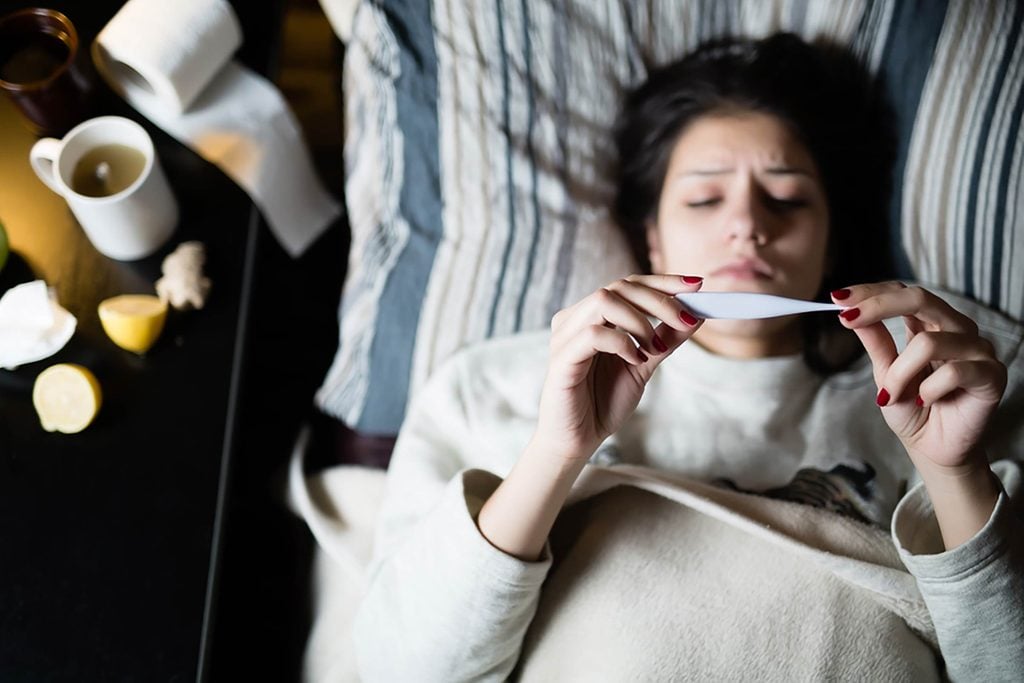This Is the Reason Why Fevers Make You Feel Cold
Updated: Oct. 05, 2018
It's not because of all those ice pops you ate for breakfast.

It defies logic—like seeing water and oil miraculously combine into one solution or like seeing a cat and dog cooperate toward a common goal (or like seeing a cat cooperate with anything, ever.) You have a fever, but you’re freezing cold at the same time. Those are opposite things and yet they almost always come together as a pair, peas in a violently ill pod. (Here’s how to tell if you have the flu.)
The reason is responsive. When a fever hits your system, a series of bodily reactions begin to ricochet into each other, a Rube Goldberg machine of tasks meant to combat what disrupted everything. Pyrexia, the medical term for fever, occurs as an inflammatory response to everything from cancer to the common cold—here are clear signs a cold is coming and how can stop it.
Pyrexia is caused by pyrogens, fever-inducing substances which can come from inside or outside the body. The pyrogens course through your system all the way to the hypothalamus, the part of the brain right around the temple responsible for temperature regulation. The hypothalamus gets the signal to do everything necessary to raise the body’s temperature and this is where the cold front comes along.
Despite the fact that you feel hot, the body continues use heat-generating processes like shivering, goosebumps, and blood vessel constriction to continually raise its temperature. It also employs you in the process by making you feel cold, causing you to reach for more blankets to complete the warming process.
When everything is sliding back to normal and the fever is fleeing, this is when your body realizes its true temperature. The pyrogens start to disappear and the hypothalamus stops getting signals to heat up, and suddenly, your body no longer needs all the processes. The fever “breaks,” and your body resorts to sweating profusely as a means to cool down again.
This information won’t help you in the upcoming intense flu season, but it sure will help you out at that next neuroscience shindig you attend. Make sure to prevent the flu with this DIY flu fighting kit—including a flu shot, which you should get every year.
[Source: Mental Floss]